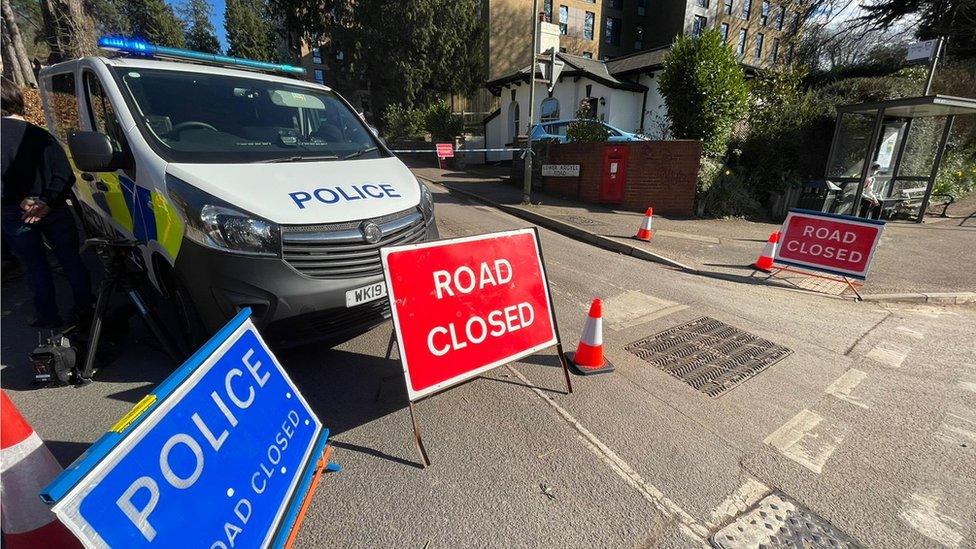Exeter WW2 bomb: People not able to go home on Sunday
- Published
Watch the moment a World War Two bomb was detonated in Exeter
People who live within 330ft (100m) of a World War Two bomb found in Exeter will not be allowed home on Sunday.
More than 2,600 households and 12 university halls of residence were cleared before the 2,200lb (1,000kg) device was destroyed on Saturday.
Police said the blast left a crater about the size of a double-decker bus.
They added it was uncertain whether anyone who lived within a wider 400m (1,310ft) cordon of the scene would be allowed home either.
Police have reported large pieces of metal debris hitting buildings and said some properties in the 100m (330ft) exclusion zone had sustained "structural damage".
A resident whose home lies just outside the wider exclusion radius said hot metal had landed at the cordon's edge.
The bomb was found on Friday morning by builders on private land next to the University of Exeter's Streatham campus and about 1,400 students were among the evacuees.
One told the BBC that students' assignments and test preparation had been disrupted, and while the university would address those issues, having to move around had been "inconvenient".
The halls are among the sites to which people cannot return on Sunday.
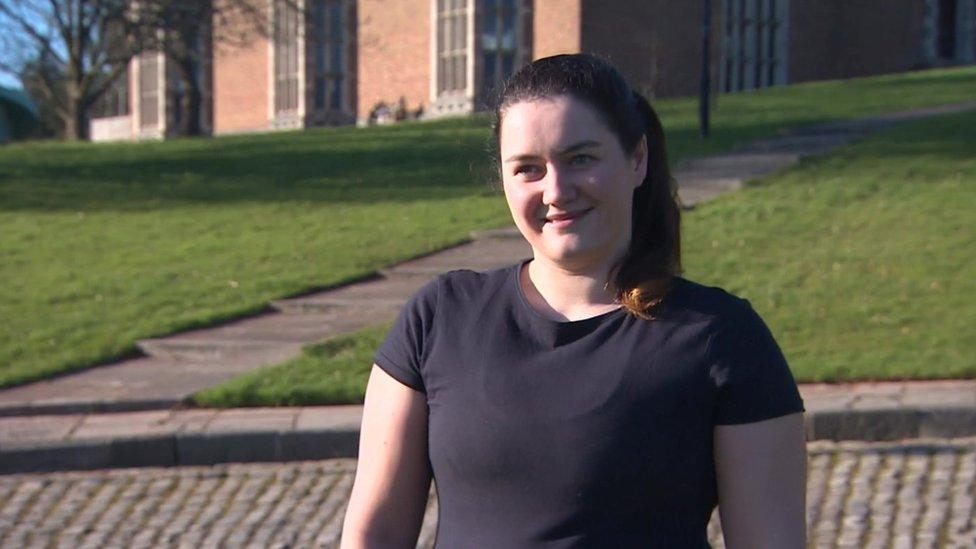
Robyn Clifford - who lives outside the exclusion zone and stayed at home - said hot metal debris landed at the edge of the 400m cordon
The blast impact from the German device - a so-called "Hermann bomb" - was described by police as "significant", with debris thrown at least 820ft (250m) away, they said.
A number of properties "predominantly" within the 100m-zone "suffered structural damage, including broken windows and cracked walls", according to the Devon and Cornwall force.
"Debris, including large metal objects, were thrown in the blast, some of which landed on nearby roofs, which require the use of a crane to remove," a spokesperson said.
Resident Robyn Clifford, who did not have to evacuate as she lives just outside the exclusion zone, said hot metal debris landed at the edge of the 400m cordon.
She said the blast happened "really quickly and really loudly", and she felt a "huge whoosh of air" through an open window as the house shook, although it was not damaged.
"We had a lot of dust and sand that settled on cars, and a neighbour in the street behind us had a piece of hot metal land very close to them," she said.
First year business management student Toby Holden, who was re-housed in other student accommodation after the evacuations, said he was "playing the waiting game to return".
He said: "We have had the chance to defer our exams and assignments, so that's a good thing that uni has allowed us to do. But it's inconvenient moving around."
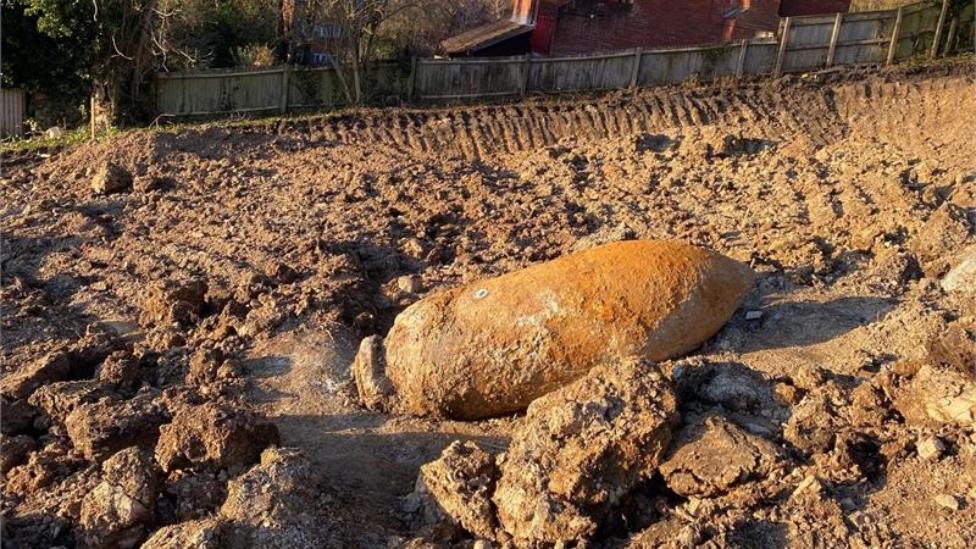
The destruction of the bomb caused structural damage to buildings within the cordon
Bomb disposal teams destroyed the device in a 400-tonne "box" of sand just before 18:15 GMT on Saturday in an explosion heard up to five miles (8km) away.
Police said it was due to the "extent of essential assessment work" that it was not possible to predict whether people in the wider, 400m-zone would be able to return home on Sunday.
They added there were no public health concerns regarding the impact of the explosion, which caused a large plume of sand.
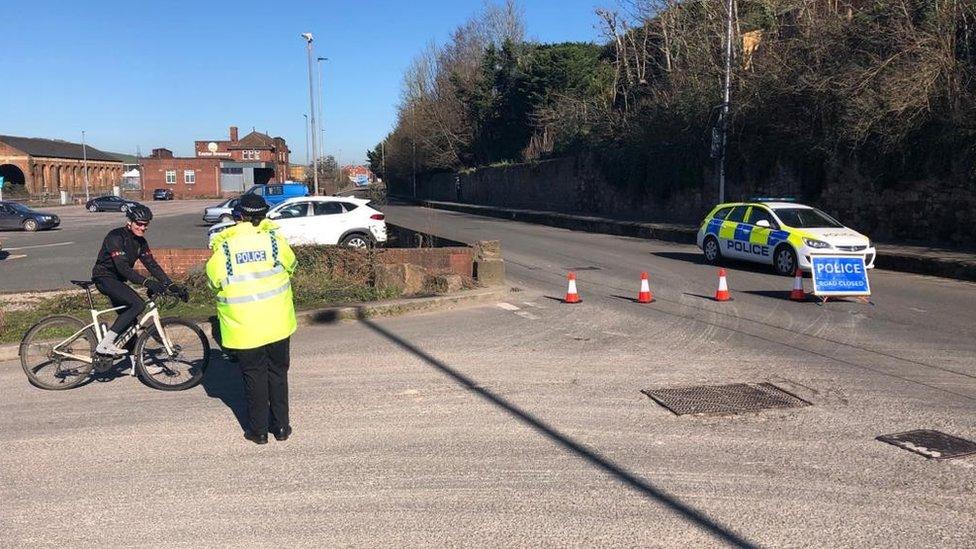
Some roads remain closed in Exeter on Sunday after the bomb was destroyed
Devon County Council has a helpline for evacuated residents who need support.
The majority of residents who were evacuated on Saturday stayed with friends and family.
Police say the council has confirmed that "those already in hotel accommodation will be able to stay in their hotels [Sunday night] if necessary".
Council leader John Hart said, external all agencies involved were "moving as quickly as we can to clear debris from the area, assess structural damage to properties and facilities, and make the area safe for the return of residents as quickly as possible".
Allow X content?
This article contains content provided by X. We ask for your permission before anything is loaded, as they may be using cookies and other technologies. You may want to read X’s cookie policy, external and privacy policy, external before accepting. To view this content choose ‘accept and continue’.
The university said, external students would not be able to return to halls on Sunday but told them it would "ensure that your alternative accommodation remains available overnight and we will continue to support you throughout".
Students in private accommodation "should follow instructions from local authorities", it said.
It also said it was "critical" that no-one returned to 15 buildings and areas on campus, external "before we have assessed them as safe for occupation".
However, it expected "all academic buildings will be open as usual tomorrow [Monday]" and anyone "scheduled to be on campus tomorrow for work or study... should plan to attend".
Roads remain closed in the area as a result of the incident.
Coastguard bosses said that their staff and volunteers who helped with evacuations and assisted police had been stood down, external "after providing around 1,000 hours of support".
The city was heavily attacked by German bombers in 19 raids during World War Two, which saw more than 7,000 devices dropped, particularly in May 1942 during the Baedecker Raids, external.

Follow BBC News South West on Twitter, external, Facebook, external and Instagram, external. Send your story ideas to spotlight@bbc.co.uk, external.
Related topics
- Published27 February 2021
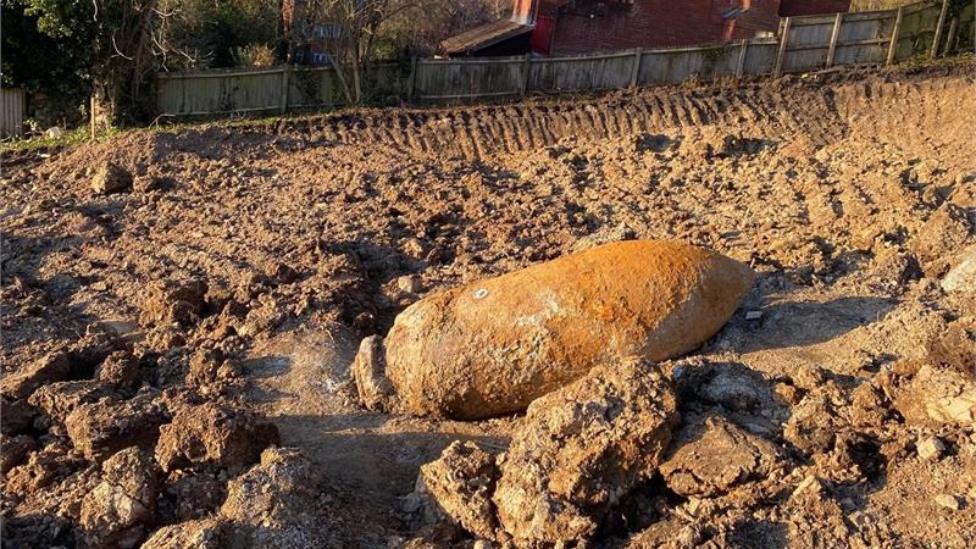
- Published26 February 2021
